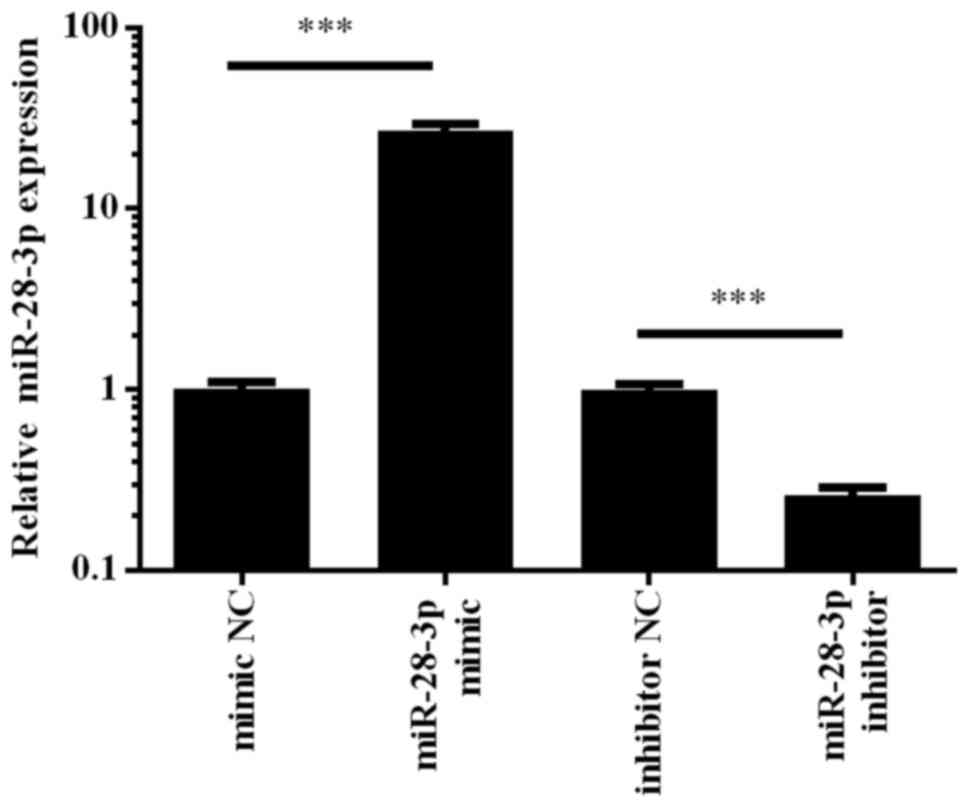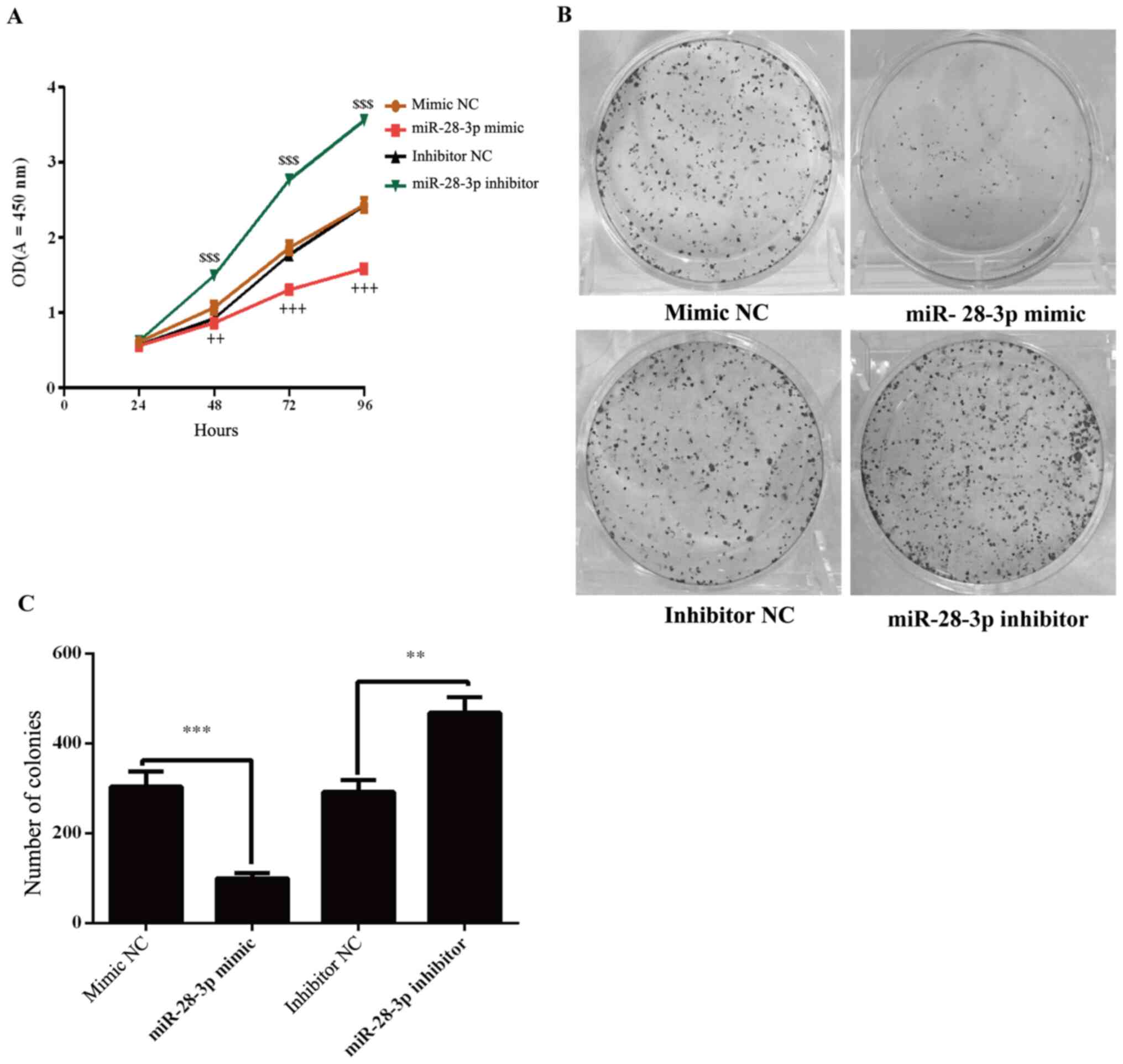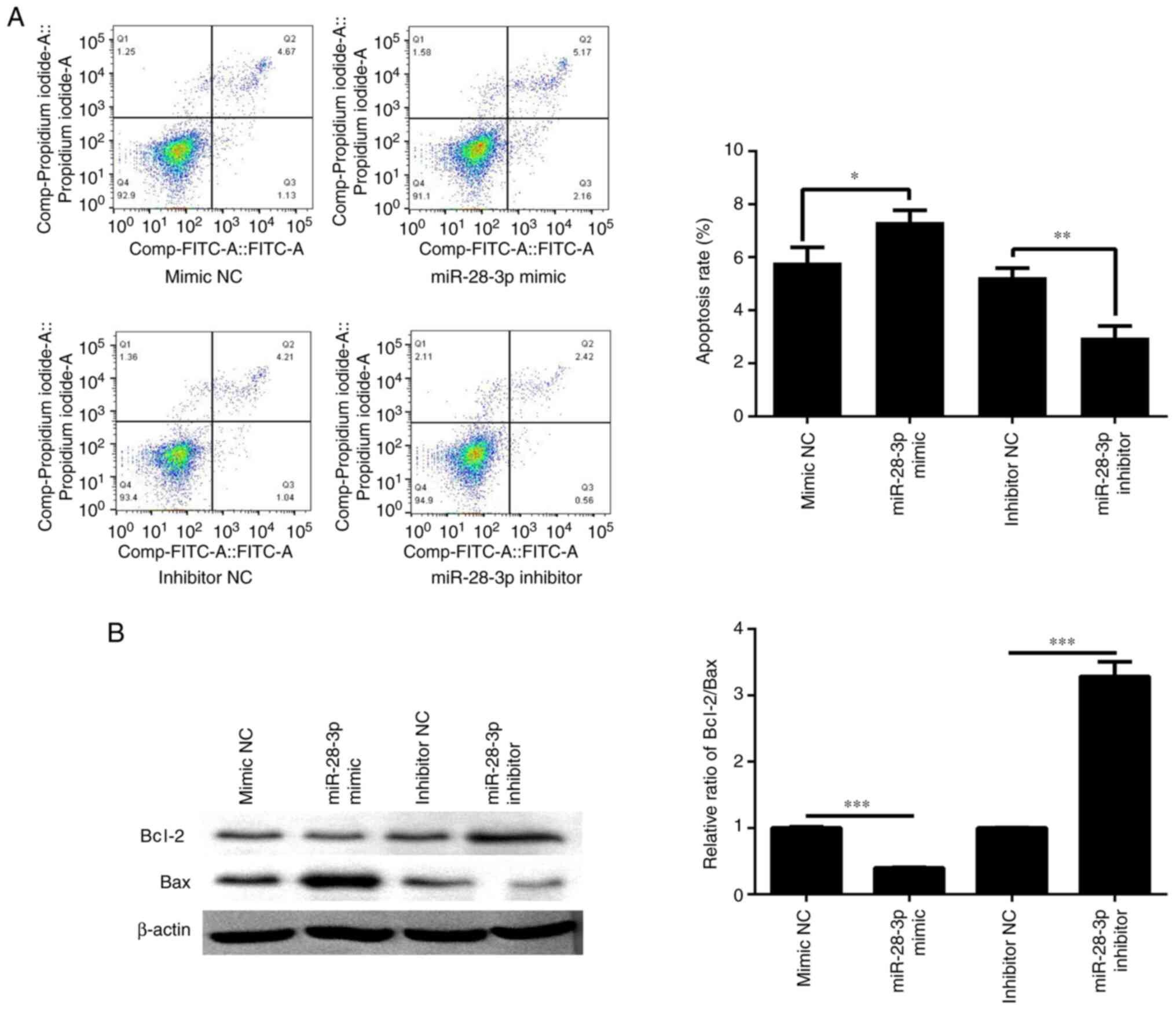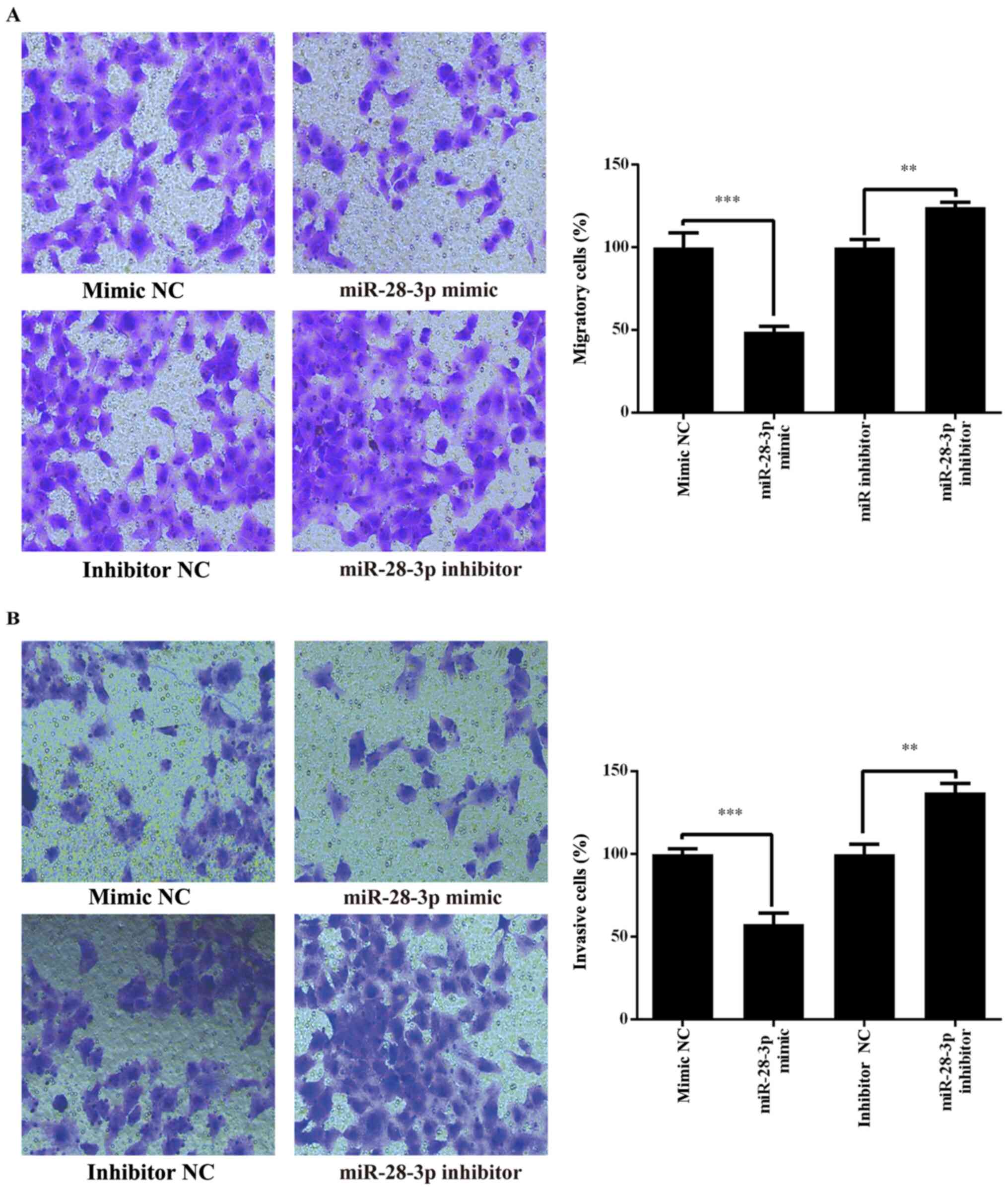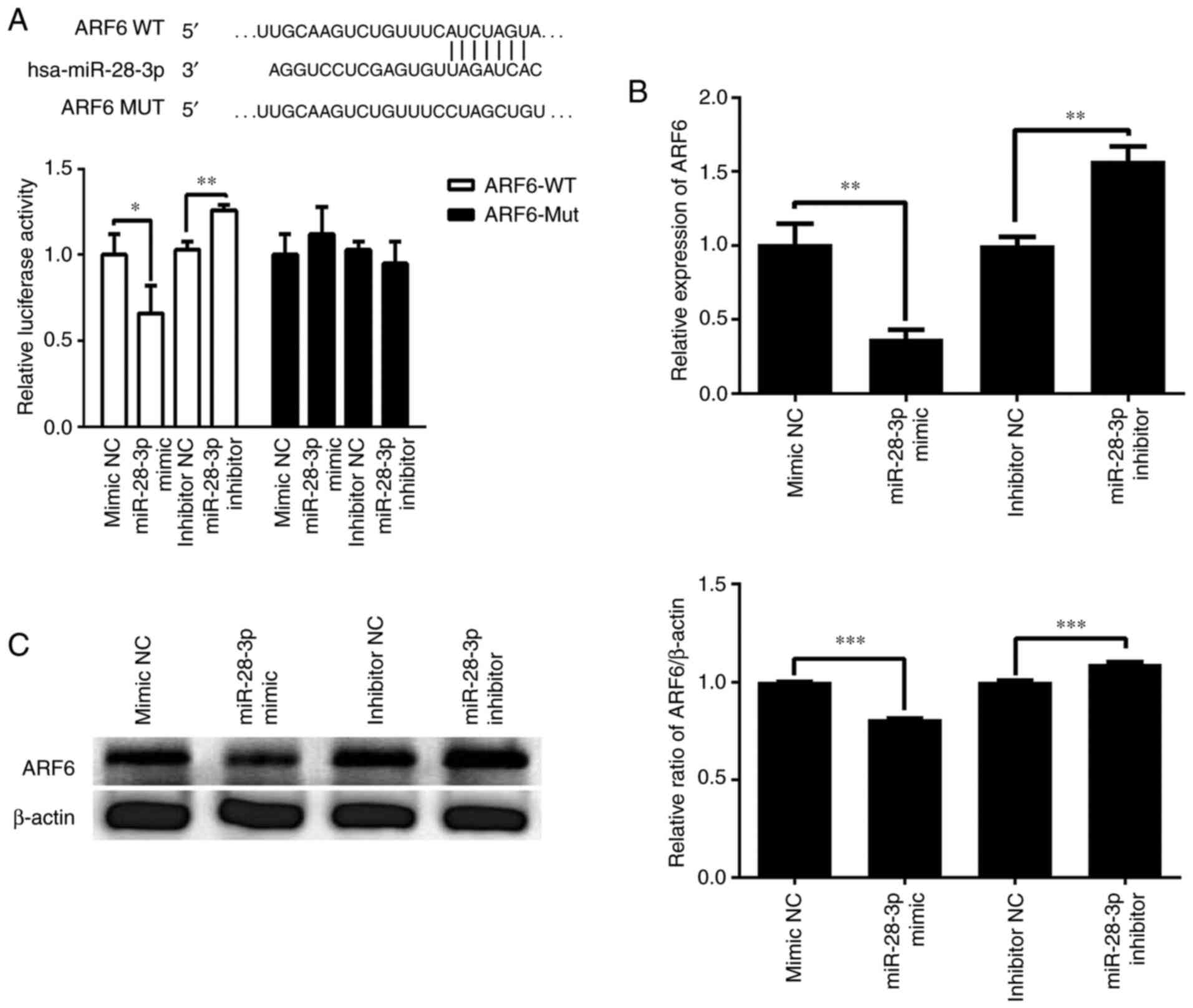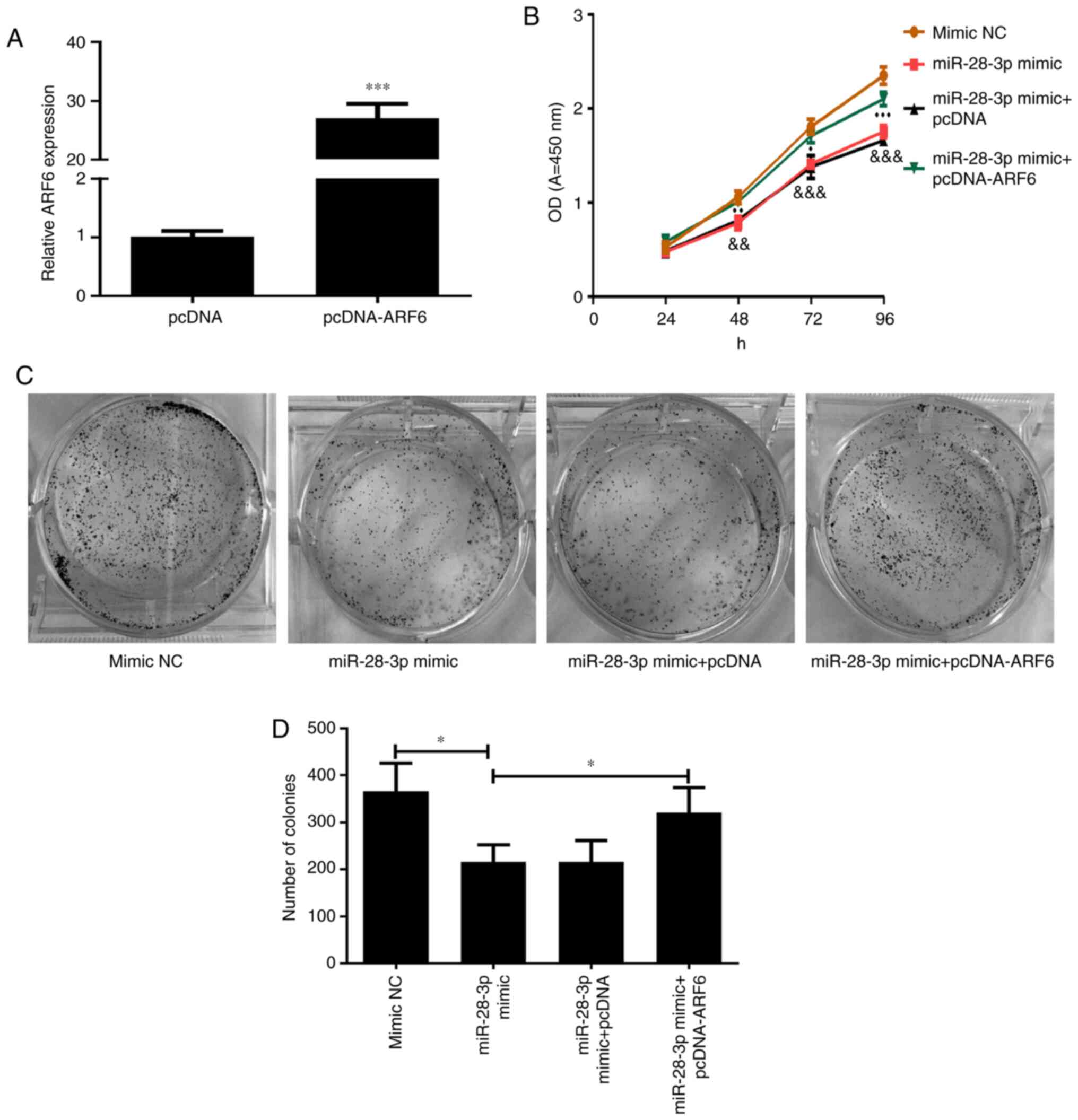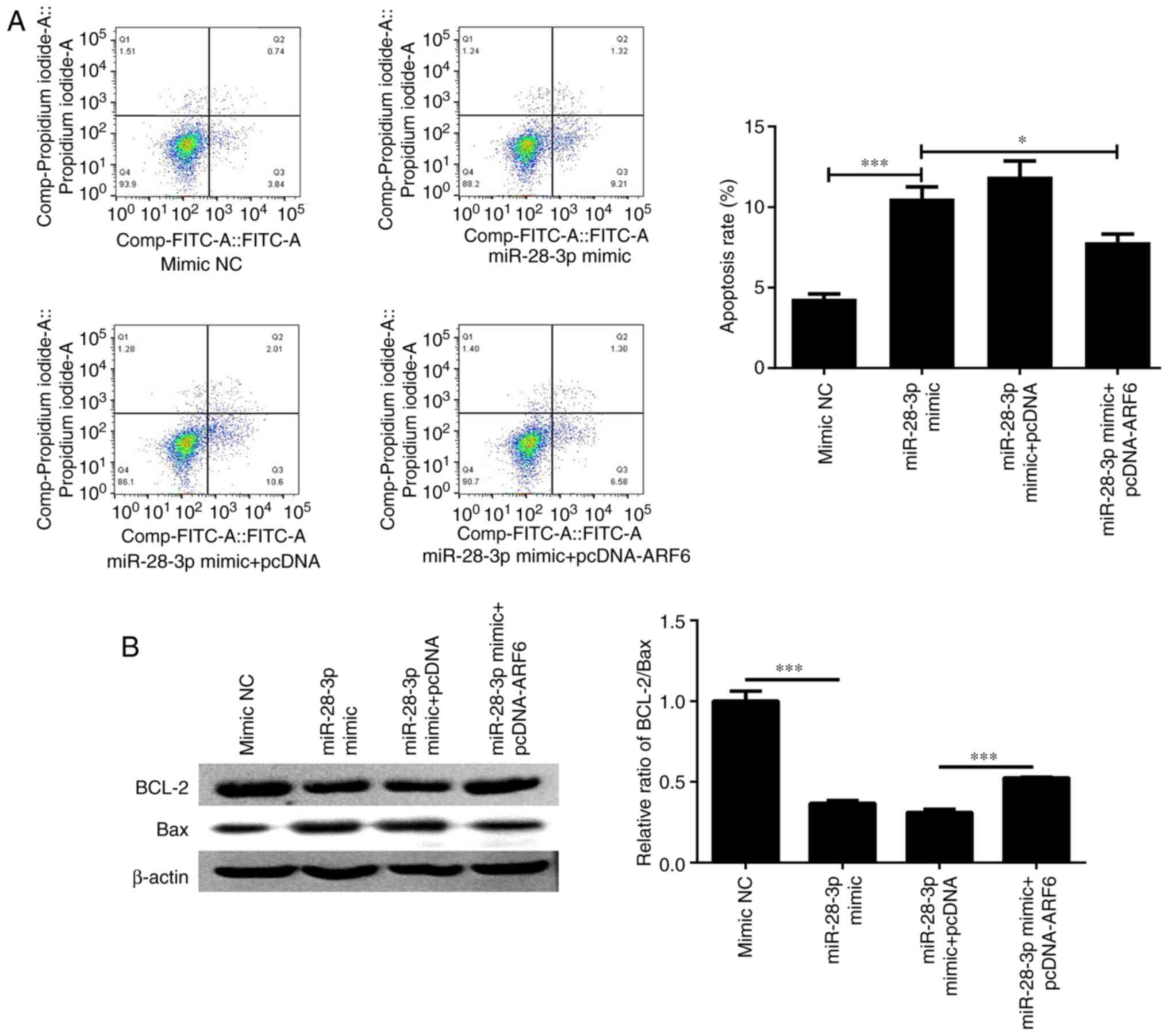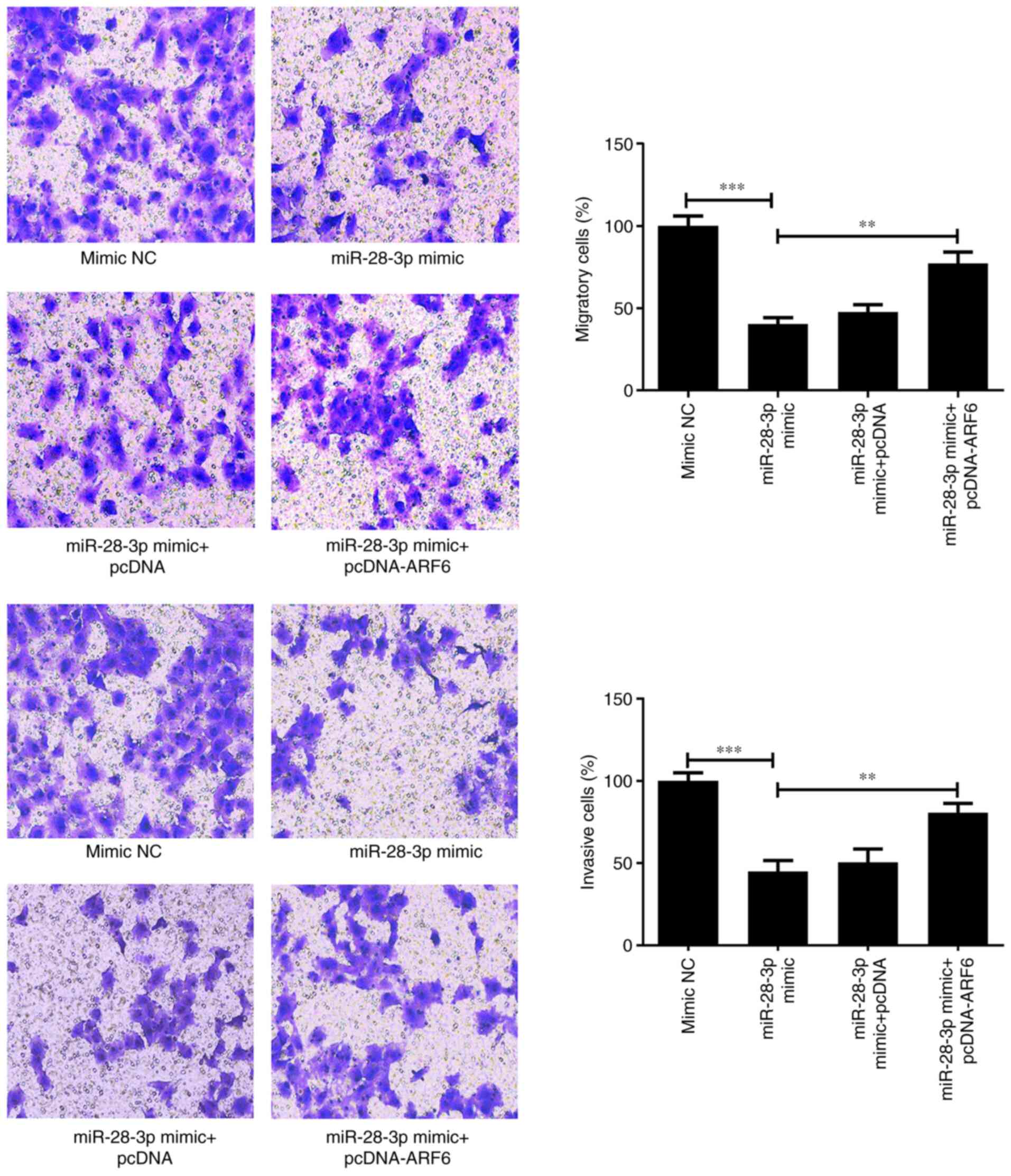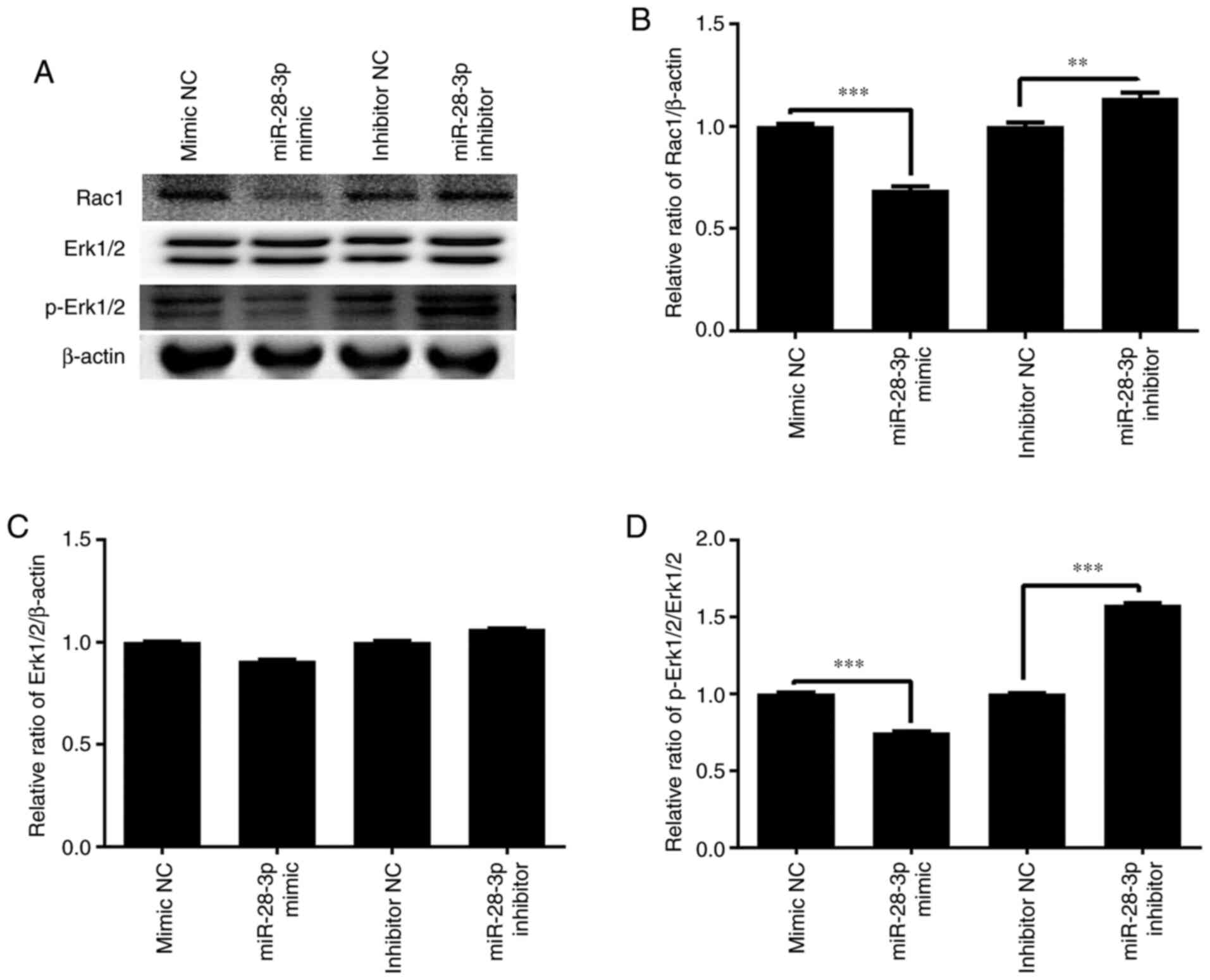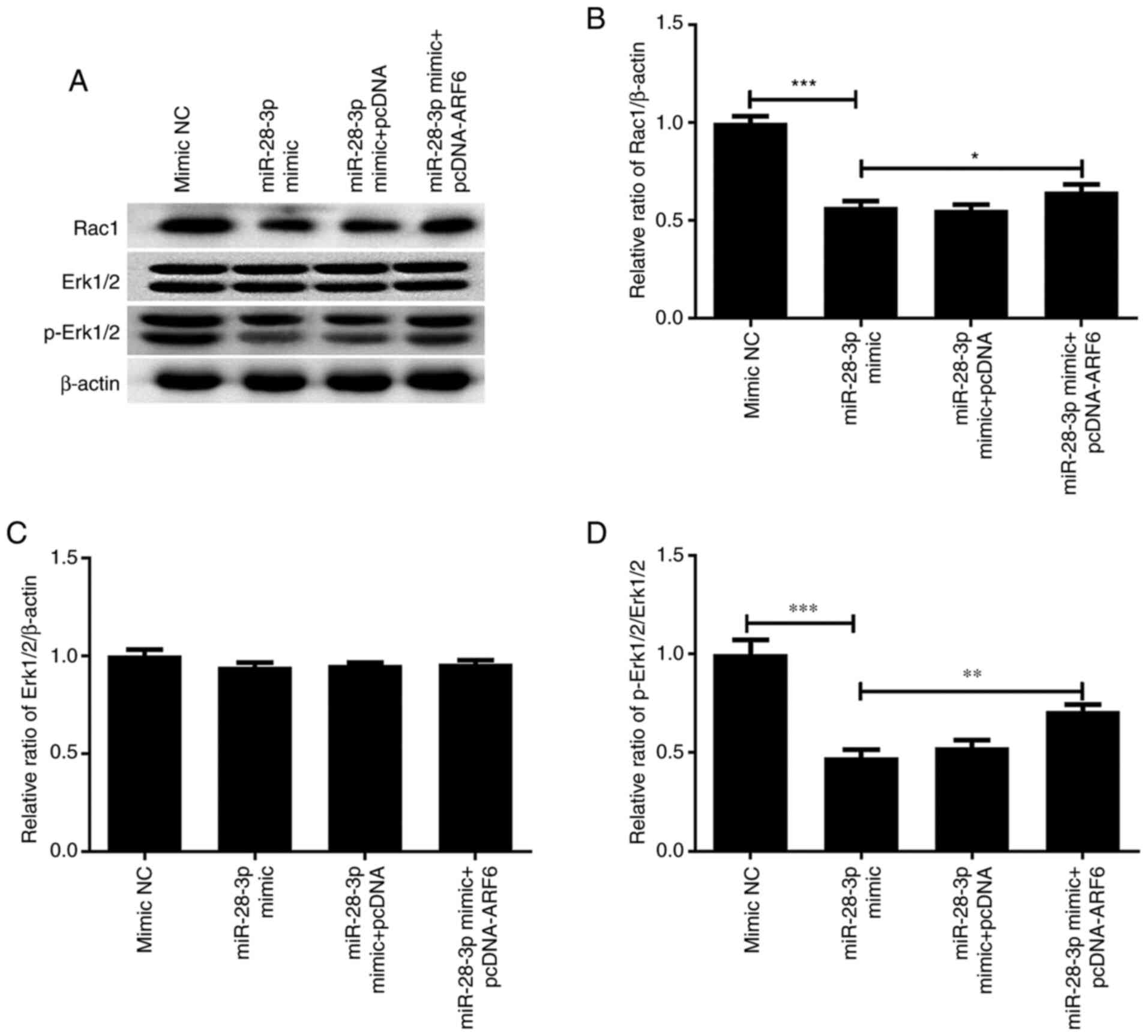|
1
|
Bray F, Ferlay J, Soerjomataram I, Siegel
RL, Torre LA and Jemal A: Global cancer statistics 2018: GLOBOCAN
estimates of incidence and mortality worldwide for 36 cancers in
185 countries. CA Cancer J Clin. 68:394–424. 2018.PubMed/NCBI View Article : Google Scholar
|
|
2
|
Nagaya N and Horie S: Endocrine therapy
for prostate cancer. Clin Calcium. 28:1527–1533. 2018.PubMed/NCBI(In Japanese).
|
|
3
|
Nead KT, Sinha S and Nguyen PL: Androgen
deprivation therapy for prostate cancer and dementia risk: A
systematic review and meta-analysis. Prostate Cancer Prostatic Dis.
20:259–264. 2017.PubMed/NCBI View Article : Google Scholar
|
|
4
|
Fujita K and Nonomura N: Role of androgen
receptor in prostate cancer: A review. World J Mens Health.
37:288–295. 2019.PubMed/NCBI View Article : Google Scholar
|
|
5
|
Carruba G: Estrogens in prostate cancer.
In: Prostate Cancer: A Comprehensive Perspective. Tewari, AK (ed).
Springer, London, pp369-381, 2013.
|
|
6
|
Guo H, Ingolia NT, Weissman JS and Bartel
DP: Mammalian microRNAs predominantly act to decrease target mRNA
levels. Nature. 466:835–840. 2010.PubMed/NCBI View Article : Google Scholar
|
|
7
|
Tutar Y: miRNA and cancer; computational
and experimental approaches. Curr Pharm Biotechnol.
15(429)2014.PubMed/NCBI View Article : Google Scholar
|
|
8
|
Krol J, Loedige I and Filipowicz W: The
widespread regulation of microRNA biogenesis, function and decay.
Nat Rev Genet. 11:597–610. 2010.PubMed/NCBI View
Article : Google Scholar
|
|
9
|
Vanacore D, Boccellino M, Rossetti S,
Cavaliere C, D'Aniello C, Di Franco R, Romano FJ, Montanari M, La
Mantia E, Piscitelli R, et al: Micrornas in prostate cancer: An
overview. Oncotarget. 8:50240–50251. 2017.PubMed/NCBI View Article : Google Scholar
|
|
10
|
Bonci D, Coppola V, Musumeci M, Addario A,
Giuffrida R, Memeo L, D'Urso L, Pagliuca A, Biffoni M, Labbaye C,
et al: The miR-15a-miR-16-1 cluster controls prostate cancer by
targeting multiple oncogenic activities. Nat Med. 14:1271–177.
2008.PubMed/NCBI View
Article : Google Scholar
|
|
11
|
Noonan EJ, Place RF, Pookot D, Basak S,
Whitson JM, Hirata H, Giardina C and Dahiya R: miR-449a targets
HDAC-1 and induces growth arrest in prostate cancer. Oncogene.
28:1714–1724. 2009.PubMed/NCBI View Article : Google Scholar
|
|
12
|
Fletcher CE, Sulpice E, Combe S, Shibakawa
A, Leach DA, Hamilton MP, Chrysostomou SL, Sharp A, Welti J, Yuan
W, et al: Androgen receptor-modulatory microRNAs provide insight
into therapy resistance and therapeutic targets in advanced
prostate cancer. Oncogene. 38:5700–5724. 2019.PubMed/NCBI View Article : Google Scholar
|
|
13
|
Fuse M, Kojima S, Enokida H, Chiyomaru T,
Yoshino H, Nohata N, Kinoshita T, Sakamoto S, Naya Y, Nakagawa M,
et al: Tumor suppressive microRNAs (miR-222 and miR-31) regulate
molecular pathways based on microRNA expression signature in
prostate cancer. J Hum Genet. 57:691–699. 2012.PubMed/NCBI View Article : Google Scholar
|
|
14
|
Shan XW, Lv SD, Yu XM, Hu ZF, Zhang JJ,
Wang GF and Wei Q: Small RNA interference-mediated ADP-ribosylation
factor 6 silencing inhibits proliferation, migration and invasion
of human prostate cancer PC-3 cells. Nan Fang Yi Ke Da Xue Xue Bao.
36:735–743. 2016.PubMed/NCBI(In Chinese).
|
|
15
|
Hongu T, Yamauchi Y, Funakoshi Y, Katagiri
N, Ohbayashi N and Kanaho Y: Pathological functions of the small
GTPase Arf6 in cancer progression: Tumor angiogenesis and
metastasis. Small GTPases. 7:47–53. 2016.PubMed/NCBI View Article : Google Scholar
|
|
16
|
Livak KJ and Schmittgen TD: Analysis of
relative gene expression data using real-time quantitative PCR and
the 2(-Delta Delta C(T)) method. Methods. 25:402–408.
2001.PubMed/NCBI View Article : Google Scholar
|
|
17
|
Han W and Li J: Structure-activity
relationship analysis of 3-phenylpyrazole derivatives as androgen
receptor antagonists. J Biomol Struct Dyn. 38:2582–2591.
2020.PubMed/NCBI View Article : Google Scholar
|
|
18
|
Luu HN, Lin HY, Sørensen KD, Ogunwobi OO,
Kumar N, Chornokur G, Phelan C, Jones D, Kidd L, Batra J, et al:
miRNAs associated with prostate cancer risk and progression. BMC
Urol. 17(18)2017.PubMed/NCBI View Article : Google Scholar
|
|
19
|
Almeida MI, Nicoloso MS, Zeng L, Ivan C,
Spizzo R, Gafà R, Xiao L, Zhang X, Vannini I, Fanini F, et al:
Strand-specific miR-28-5p and miR-28-3p have distinct effects in
colorectal cancer cells. Gastroenterology. 142:886–896.e9.
2012.PubMed/NCBI View Article : Google Scholar
|
|
20
|
Huang Z, Zhang L, Zhu D, Shan X, Zhou X,
Qi LW, Wu L, Zhu J, Cheng W, Zhang H, et al: A novel serum microRNA
signature to screen esophageal squamous cell carcinoma. Cancer Med.
6:109–119. 2017.PubMed/NCBI View
Article : Google Scholar
|
|
21
|
Pospisilova S, Pazourkova E, Horinek A,
Brisuda A, Svobodova I, Soukup V, Hrbacek J, Capoun O, Hanus T,
Mares J, et al: MicroRNAs in urine supernatant as potential
non-invasive markers for bladder cancer detection. Neoplasma.
63:799–808. 2016.PubMed/NCBI View Article : Google Scholar
|
|
22
|
Hongu T and Kanaho Y: Versatile in vivo
functions of the small GTPase Arf6. Seikagaku. 88:78–85.
2016.PubMed/NCBI(In Japanese).
|
|
23
|
Li R, Peng C, Zhang X, Wu Y, Pan S and
Xiao Y: Roles of Arf6 in cancer cell invasion, metastasis and
proliferation. Life Sci. 182:80–84. 2017.PubMed/NCBI View Article : Google Scholar
|
|
24
|
Li M, Wang J, Ng SS, Chan CY, He ML, Yu F,
Lai L, Shi C, Chen Y, Yew DT, et al: Adenosine
diphosphate-ribosylation factor 6 is required for epidermal growth
factor-induced glioblastoma cell proliferation. Cancer.
115:4959–4972. 2009.PubMed/NCBI View Article : Google Scholar
|
|
25
|
Grossmann AH, Yoo JH, Clancy J, Sorensen
LK, Sedgwick A, Tong Z, Ostanin K, Rogers A, Grossmann KF, Tripp
SR, et al: The small GTPase ARF6 stimulates β-catenin
transcriptional activity during WNT5A-mediated melanoma invasion
and metastasis. Sci Signal. 6(ra14)2013.PubMed/NCBI View Article : Google Scholar
|
|
26
|
Hashimoto S, Onodera Y, Hashimoto A,
Tanaka M, Hamaguchi M, Yamada A and Sabe H: Requirement for Arf6 in
breast cancer invasive activities. Proc Natl Acad Sci USA.
101:6647–6652. 2004.PubMed/NCBI View Article : Google Scholar
|
|
27
|
Menju T, Hashimoto S, Hashimoto A, Otsuka
Y, Handa H, Ogawa E, Toda Y, Wada H, Date H, Sabe H, et al:
Engagement of overexpressed Her2 with GEP100 induces autonomous
invasive activities and provides a biomarker for metastases of lung
adenocarcinoma. PLoS One. 6(e25301)2011.PubMed/NCBI View Article : Google Scholar
|
|
28
|
Liang C, Qin Y, Zhang B, Ji S, Shi S, Xu
W, Liu J, Xiang J, Liang D, Hu Q, et al: ARF6, induced by mutant
Kras, promotes proliferation and Warburg effect in pancreatic
cancer. Cancer Lett. 388:303–311. 2017.PubMed/NCBI View Article : Google Scholar
|
|
29
|
Klemke RL, Cai S, Giannini AL, Gallagher
PJ, de Lanerolle P and Cheresh DA: Regulation of cell motility by
mitogen-activated protein kinase. J Cell Biol. 137:481–492.
1997.PubMed/NCBI View Article : Google Scholar
|
|
30
|
Burridge K and Wennerberg K: Rho and Rac
take center stage. Cell. 116:167–179. 2004.PubMed/NCBI View Article : Google Scholar
|
|
31
|
Hu B, Shi B, Jarzynka MJ, Yiin JJ,
D'Souza-Schorey C and Cheng SY: ADP-ribosylation factor 6 regulates
glioma cell invasion through the IQ-domain GTPase-activating
protein 1-Racl-mediated pathway. Cancer Res. 69:794–801.
2009.PubMed/NCBI View Article : Google Scholar
|
|
32
|
Tague SE, Muralidharan V and
D'Souza-Schorey C: ADP-ribosylation factor 6 regulates tumor cell
invasion through the activation of the MEK/ERK signaling Pathway.
Proc Natl Acad Sci USA. 101:967I–9676. 2004.PubMed/NCBI View Article : Google Scholar
|
|
33
|
Hu Z, Du J, Yang L, Zhu Y, Yang Y, Zheng
D, Someya A, Gu L and Lu X: GEPl00/Arf6 is required for epidermal
growth factor-induced ERK/Rac 1 signaling and cell migration in
human hepatoma HepG2 cells. PLoS One. 7(e38777)2012.PubMed/NCBI View Article : Google Scholar
|
















